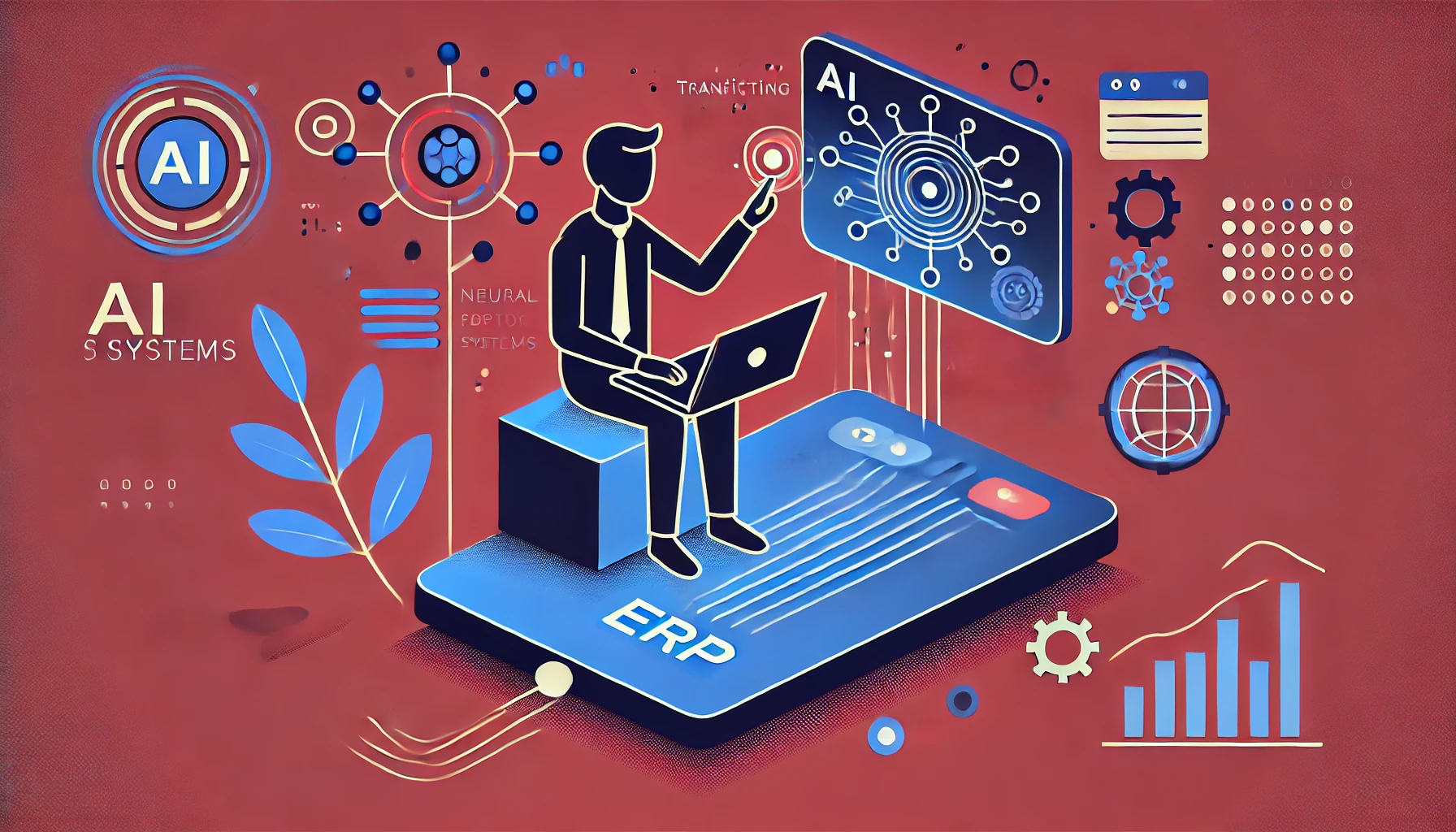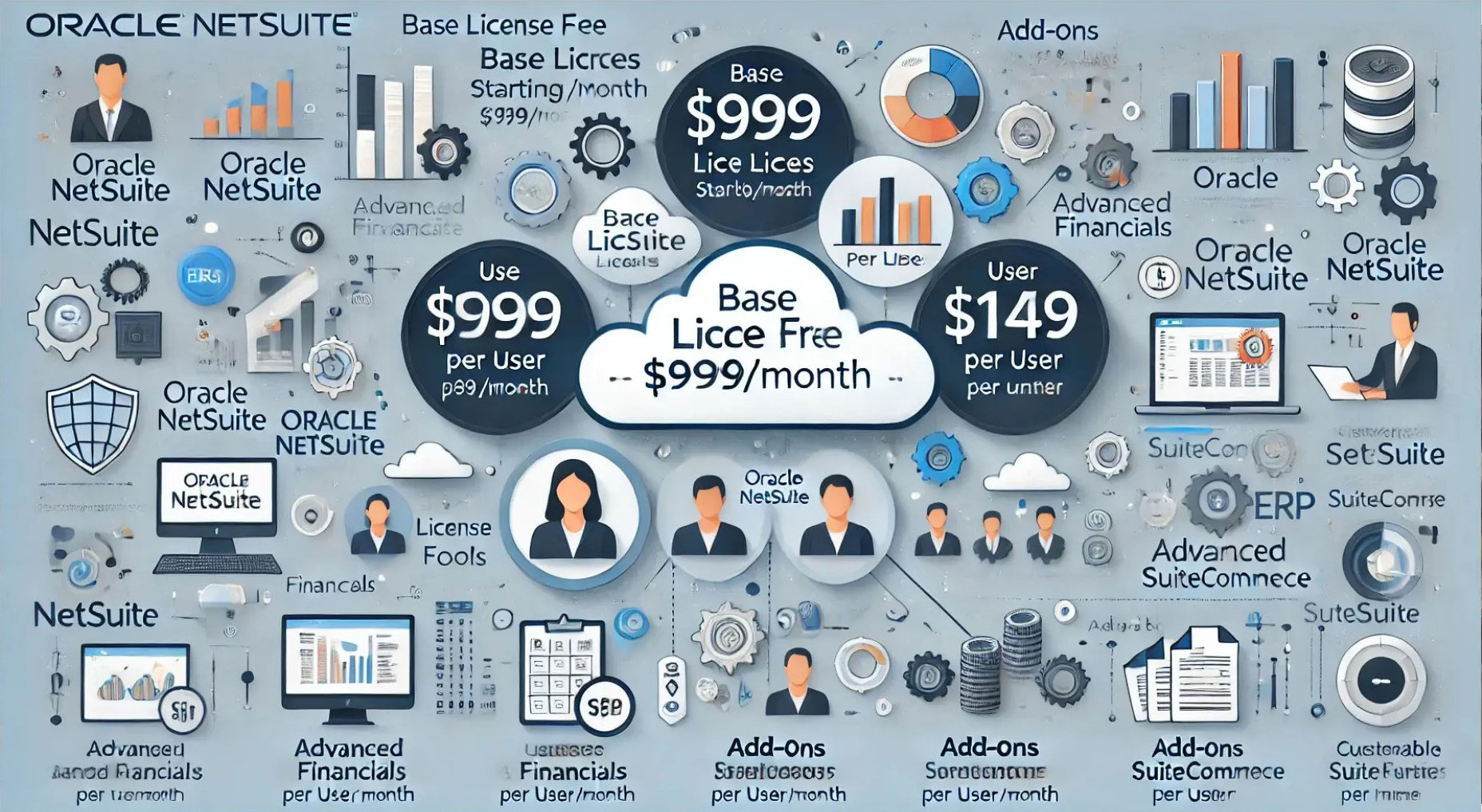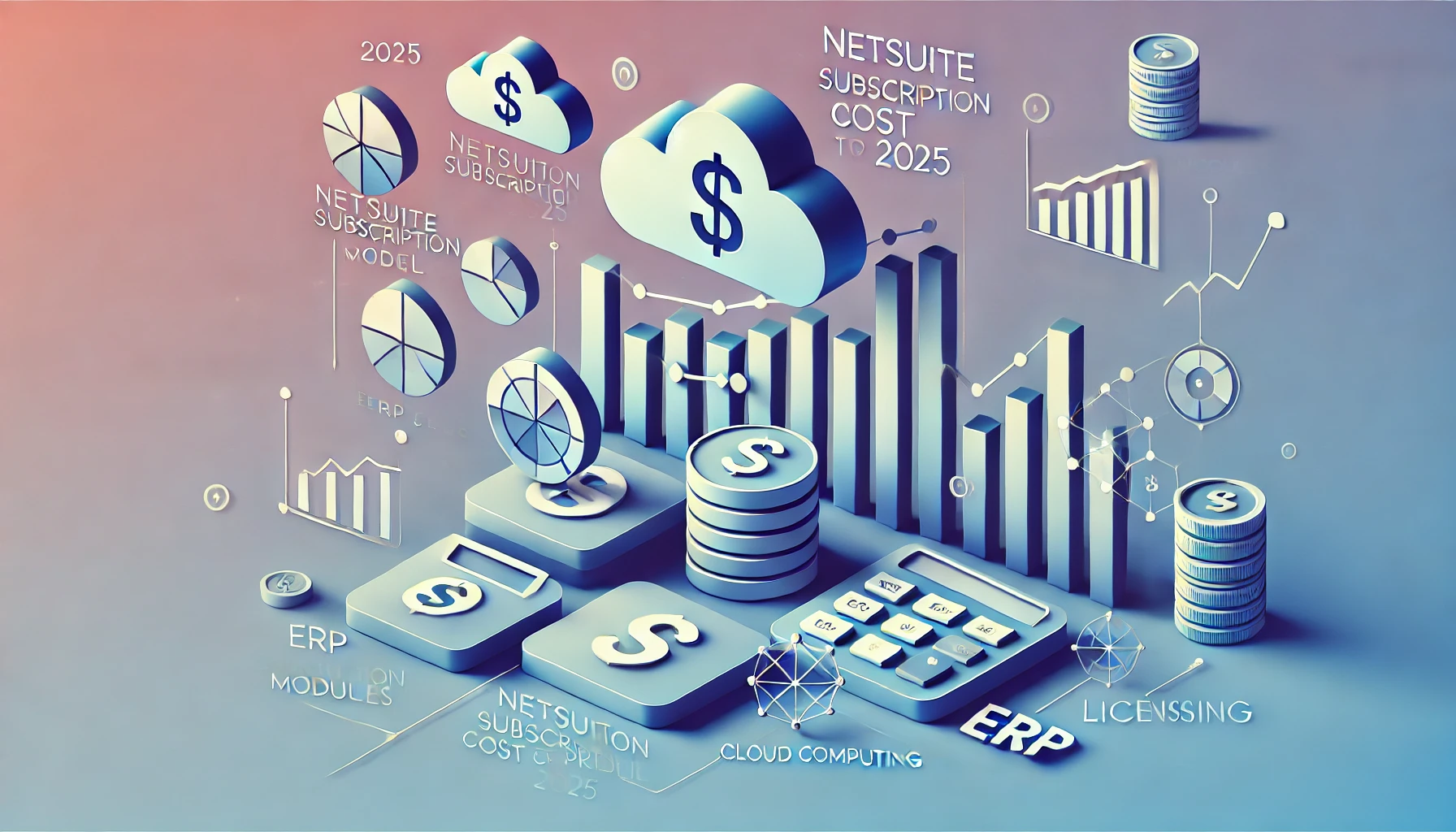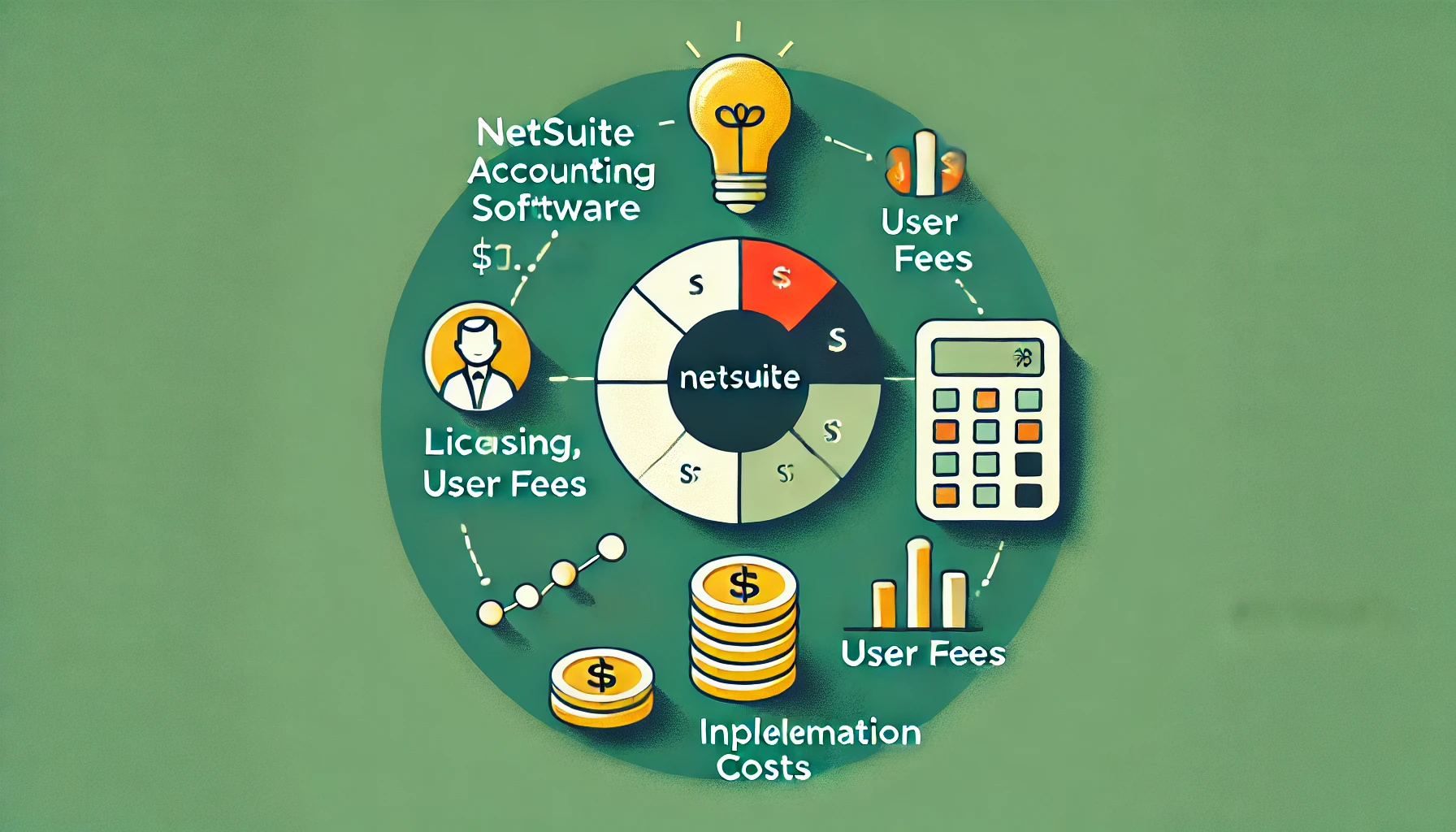ERP strategist
Enterprise Resource Planning (ERP) systems are undergoing a significant transformation with the integration of Artificial Intelligence (AI). AI is enhancing automation, predictive analytics, and decision-making, enabling businesses to operate with greater efficiency and agility.
For a digital transformation specialist, understanding the role of AI in ERP is essential to driving innovation and optimizing business processes. AI-powered ERP solutions are making enterprise management smarter, more responsive, and data-driven.
Table of Contents
ToggleThe Role of AI in ER
Traditional ERP systems focus on data management, reporting, and automation. With AI, they become self-learning and predictive, offering businesses deeper insights and better operational efficiency.
- Automates repetitive tasks, reducing manual effort and increasing productivity
- Uses predictive analytics to forecast demand, revenue trends, and risks
- Enhances decision-making with AI-driven insights
- Optimizes processes by identifying inefficiencies and suggesting improvements
- Personalizes ERP user experience based on individual work patterns
AI-driven ERP systems are not just improving efficiency; they are reshaping how businesses operate in a data-driven world.
Key Ways AI is Transforming ERP Systems
Intelligent Process Automation (IPA): AI-powered ERP systems integrate Intelligent Process Automation to streamline business workflows.
- Automates invoice processing, payroll management, and order fulfillment
- Uses machine learning to improve accuracy and efficiency over time
- Reduces reliance on manual data entry, minimizing errors and inconsistencies
For example, in manufacturing, AI-powered ERP systems automatically reorder inventory when stock levels drop below a certain threshold, preventing supply chain disruptions.
AI-Powered Predictive Analytics: AI enhances ERP systems with predictive analytics, enabling businesses to make proactive decisions.
- Forecasts market trends, sales, and customer demand
- Identifies financial risks and fraud patterns
- Optimizes supply chain operations by predicting demand fluctuations
Retail companies using AI-driven ERP systems can anticipate seasonal demand changes, ensuring optimal stock levels and preventing inventory shortages.
Smart Decision-Making with AI-Driven Insights: AI-enhanced ERP systems analyze large datasets to provide actionable insights.
- Uses natural language processing to extract insights from structured and unstructured data
- Provides real-time data visualization for more informed decision-making
- Helps businesses identify opportunities for cost reduction and revenue growth
A digital transformation specialist in finance can use AI-driven ERP analytics to predict cash flow trends and suggest optimal investment strategies.
AI-Enabled Chatbots and Virtual Assistants: AI-powered chatbots and virtual assistants enhance ERP systems by automating customer and employee interactions.
- Assists employees with data retrieval, report generation, and routine queries
- Improves customer service by handling inquiries and processing orders efficiently
- Reduces the need for manual data entry and administrative tasks
For instance, AI-driven chatbots in an HR ERP system help employees check leave balances, apply for time off, and update personal records without requiring human intervention.
AI in Financial Management and Fraud Detection: AI improves financial management by automating processes and identifying risks.
- Detects fraudulent transactions by analyzing spending patterns
- Automates expense tracking and financial reporting, reducing errors
- Provides real-time financial insights for budgeting and forecasting
AI can recognize unusual spending behavior in company expenses and flag potential fraud for further investigation.
Personalized ERP User Experience: AI enables ERP systems to adapt to user preferences, improving efficiency and usability.
- Uses machine learning to suggest relevant reports, tools, and dashboards
- Simplifies navigation by prioritizing frequently used features
- Enhances search functionality within ERP systems for easier data retrieval
An AI-powered ERP dashboard can automatically prioritize tasks based on an employee’s work patterns, streamlining workflow.
AI-Powered Supply Chain Optimization: AI-driven ERP solutions improve supply chain efficiency through automation and real-time data analysis.
- Predicts inventory shortages and suggests optimal reordering strategies
- Optimizes shipment routes and delivery schedules to reduce costs
- Enhances supplier relationship management by analyzing vendor performance data
In the e-commerce industry, AI-driven ERP ensures that warehouses are stocked efficiently, preventing both overstocking and understocking issues.

The Future of AI in ERP
AI technology in ERP is evolving rapidly, and digital transformation specialists must stay ahead of the latest developments. Key trends shaping the future of AI-driven ERP include:
- Hyperautomation, which combines AI with Robotic Process Automation (RPA) for enhanced efficiency
- AI-driven compliance and risk management, ensuring real-time regulatory adherence
- Cognitive AI and machine learning advancements, improving self-learning capabilities
- AI-powered cloud ERP solutions for better scalability and integration
- Voice-activated ERP systems, allowing hands-free navigation and command execution
Businesses that adopt AI in their ERP systems will gain a competitive advantage by improving efficiency, reducing costs, and enhancing overall performance.
Why Digital Transformation Specialists Should Prioritize AI in ERP
For digital transformation specialists, AI-driven ERP offers significant benefits that can help businesses achieve long-term success.
- Automates repetitive tasks, improving productivity and reducing manual errors
- Enhances decision-making with AI-driven predictive analytics
- Streamlines operations by identifying inefficiencies and optimizing workflows
- Strengthens financial management with AI-powered risk assessment and fraud detection
- Personalizes ERP experiences, improving user engagement and efficiency
Organizations that leverage AI in ERP systems will be better equipped to handle the challenges of the digital era, ensuring growth and innovation.

Conclusion
Artificial Intelligence is reshaping ERP systems, making them more intelligent, data-driven, and efficient. From predictive analytics and process automation to AI-powered chatbots and financial management, businesses that integrate AI into their ERP systems will experience significant improvements in operational efficiency.
For digital transformation specialists, staying informed about AI advancements in ERP is crucial to guiding businesses through digital innovation. As AI technology continues to evolve, ERP systems will become more agile, responsive, and future-ready.
Businesses looking to stay competitive must embrace AI-driven ERP solutions to optimize their processes and drive sustainable growth.




